AQUACOSM PROJECT 2021 EXPERIMENT is completed
- English
- Türkçe
AQUACOSM PROJECT 2021 EXPERIMENT focusing on "Determining the effects of high DOC and warming on the microbial and planktonic food web structure and efficiency" is completed. Here are the details of the experiment:
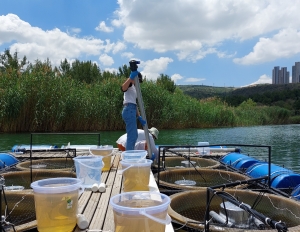
Time and Location
The 2021 mesocosm experiment was conducted for 31 days at METU Mesocosm System (aquatic) at METU Experimental Lake (Lake Golet) between 05 July-05 August.
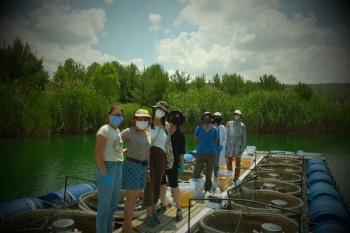
Objective
The primary objective of the experiment is to investigate the responses of the system to dissolved organic carbon (DOC) and warming as a climate change impact. Globally, freshwater ecosystems are warming at unprecedented rates and are simultaneously experiencing increased runoff of DOC (brownification) through flash floods, with little known consequences for future conservation of biodiversity and ecosystem functioning of freshwater lakes. In aquatic systems, phytoplankton (autotrophs) and bacteria (heterotrophs) are basal producers, acting as energy source for higher trophic levels, and thus shape the food webs depending on their production and composition. The increased input of dissolved organic carbon with brownification can further support mixotrophic algae which are at a competitive advantage over obligate phototrophs, as they can utilise bacterial prey as a source of carbon and energy and overcome growth limitations imposed by low-light conditions from the brownification. Having the already available nutrient advantage with their high metabolic rates hand small size, bacteria and consequently microbial loop (ML) can dominate the traditional food web.
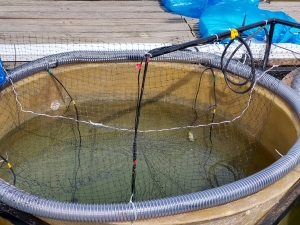
Hypothesis
We hypothesized high temperature and DOC levels;
1. give advantages heterotrophic, as compared to photoautotrophic processes, that mixotrophs can be favored.
2. competitive interactions among different phytoplankton taxa and thereby to reduce overall phytoplankton species as well as their trait richness. Loss of traits related to resource use and growth, which can have a serious outcome for ecosystem functioning, food web dynamics and trophic transfer efficiencies.
3. Impact of grazing pressure of large zooplankton grazers may also change the outcome of competitive interactions among different phytoplankton taxa
4. heterotrophic basal production will be enhanced and this will affect the food web efficiency (FWE) through energy transfer to higher trophic level (zooplankton) since bacteria are thought to be of poor nutritional quality.
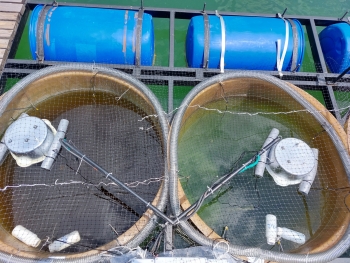
Experimental Set-up
We performed a mesocosms experiment in a full factorial design with DOC, heating, heating + DOC treatments and controls each replicated 4 times for a month from 5 July to 5 August 2021. We had food wed structure having communities from bacteria to fish level. DOC was obtained from local sources (Alder Tree Leaves) to be 8 mg/L to simulate flash flood events. Half of the mesocosms were heated to a + 4oC of controls using an automation system.
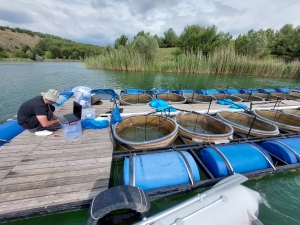
We performed 13 samplings including physiochemical parameters as well as biological parameters such as environmental DNA (eDNA), chl-a, bacteria, phytoplankton and zooplankton. We will quantify changes in bacteria, phytoplankton and zooplankton in terms of community function and community composition. We will characterize the resistance of the different communities to the DOC pulse and warming. Water chemistry analyses are already completed and future microscopic and eDNA inspection of ML communities (bacteria, HNF, ciliate) and plankton will be used to understand abundance, community composition and trait diversity (16 &18SrRNA). Both micro- & mesozooplankton community structure, and biomass will be determined. Metabolism will also be calculated.
